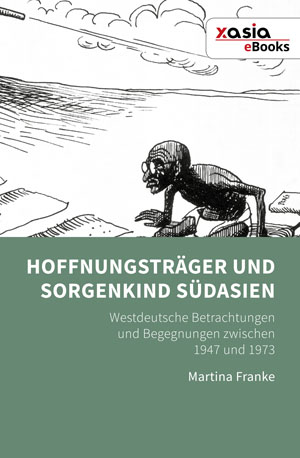Franke, Martina
Hoffnungsträger und Sorgenkind Südasien: Westdeutsche Betrachtungen und Begegnungen zwischen 1947 und 1973
India and Pakistan were associated with different and changing anticipations. Medial protagonists, such as Hans Walter Berg, Immanuel Birnbaum, Thilo Bode, Klaus Natorp, Giselher Wirsing and Marion Gräfin Dönhoff, have taken their views on South Asia to the medial public of the emerging Federal Republic of Germany. They thereby allow not only an insight into the exchange relations between media and politics but also into collective social self-description processes in the complex time period of Decolonisation, Cold War and divided German reality.
This study focuses on the perception of the South Asian countries in a West German political public changing in the course of time. The medially transported views on Jawaharlal Nehru, the first Prime Minister of India, and the views on occurrences such as the conflict between India and Portugal over Goa or the German-Indian cooperation to build the steel mill in Rourkela reveal different perspectives. The perception of the political development in South Asia until the beginning of the 1970s was in connection with the debates on granting and use of development aid. In the course of this generational affiliations and different life experiences left an imprint on the self- and external perception.
In a phase of global social and political changes and a feeling of crisis in the West German society in the decades following the Second World War, South Asia served to supersede the own guilt, helped to solve the identity crisis and gave orientation and stability in times of democratisation and economic growth.








